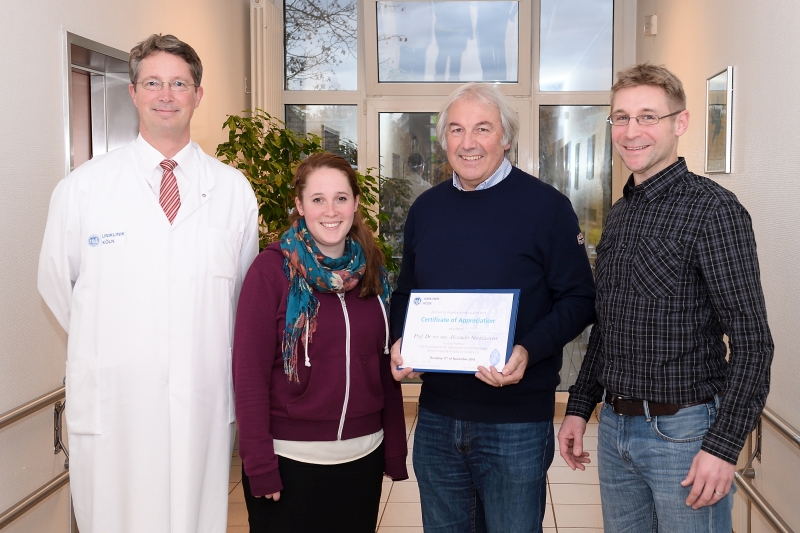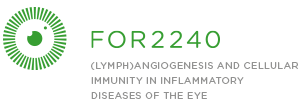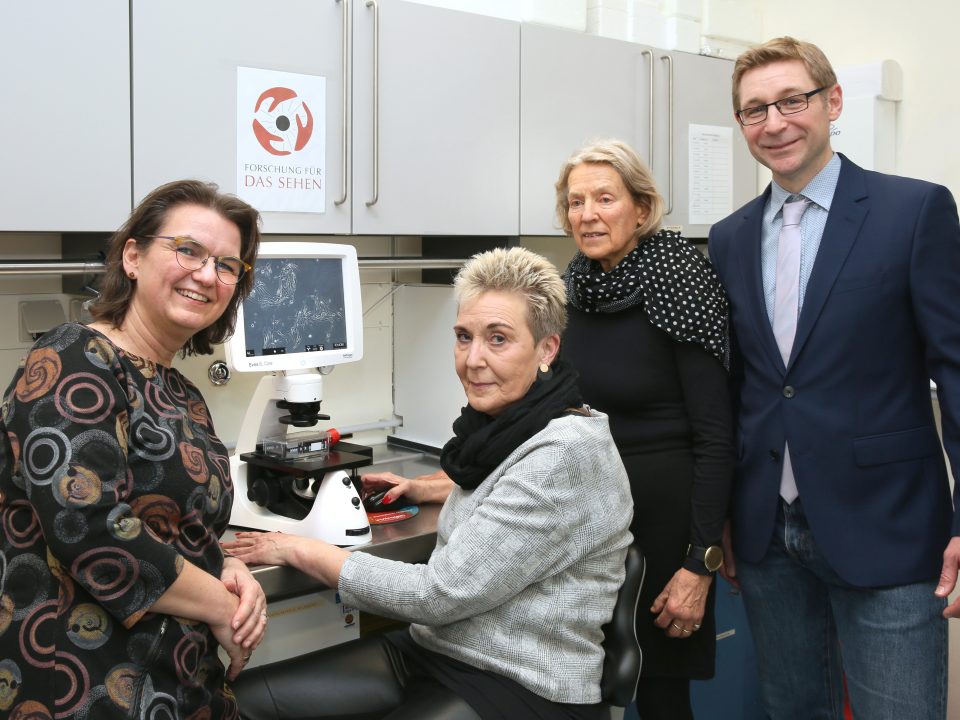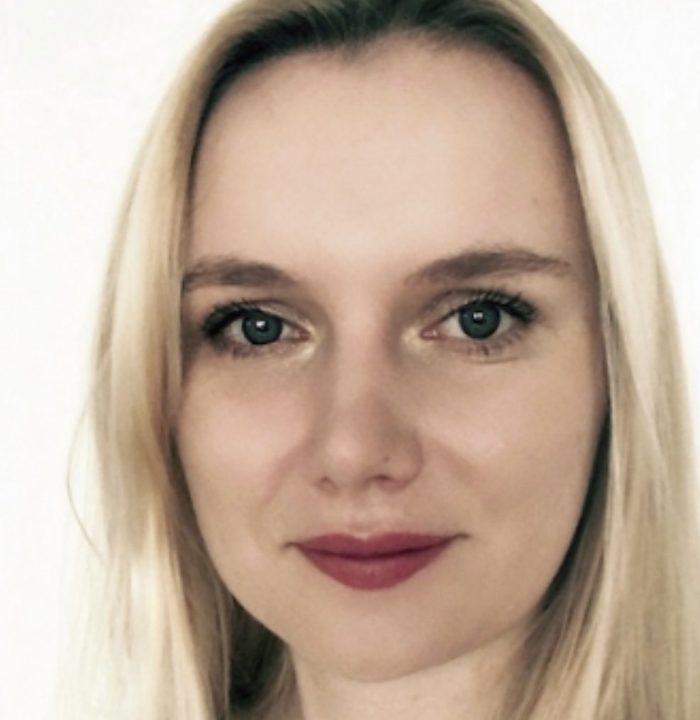Immunologist from Erlangen shares his expertise on the soluble CD83 molecule

Visiting Professor Dr. rer. nat. Alexander Steinkasserer (photo center right) came to Cologne on the 17th of November, 2016 and met with several projects of Cologne-based DFG research unit FOR 2240 “Angiogenesis, lymphangiogenesis and cellular immunity in inflammatory diseases of the eye”. Professor Steinkasserer is the Head of the Immune Modulation Department at the University Hospital Erlangen (Friedrich Alexander University of Erlangen-Nuremberg), and met with Univ.-Prof. Dr. med. Claus Cursiefen (photo left), Speaker of the FOR 2240 and Principle Investigator of Projects 1 & 2, and Univ.-Prof. Dr. rer. nat. Thomas Langmann, Vice-Speaker of the FOR 2240 and Principle Investigator of Project 6 “Role of the complement system and microglia in age-related macular degeneration”, as well as Priv.-Doz. Dr. Felix Bock (photo right), who, next to Prof. Cursiefen, is the Principle Investigator of FOR 2240 Project 1: “Induction of corneal transplant tolerance by anti(lymph)angiogenic therapy”, Ms. Ann-Charlott Schneider (photo center left), a PhD student working in Project 1, and Dr. med. Dipl.-Mol. Med. Deniz Hos, one of the Principle Investigators of Project 5 “Myeloid cell function in corneal hem- and lymphangiogenesis”. Professor Steinkasserer’s technical and scientific expertise was highly appreciated by the Principle Investigators and scientists.
The research areas that Professor Alexander Steinkasserer and his team focus on include immune-modulation in autoimmunity and transplantation by soluble CD83, transcriptional in vivo targeting of dendritic cells using the human CD83 promoter, in vivo targeting of dendritic cells to induce potent anti-tumoral immune responses directly in patients, intracellular signal transduction of CD83 in dendritic cells, immune-modulation by thymic stromal lymphopoietin (TSLP) and CD83, and the interaction between dendritic cells and viruses.
Prof. Steinkasserer gave a lecture on how the CD83 molecule modulates the immune systems by the induction of regulatory T cells, focusing on soluble CD83. He discussed what it blocks, what it down-modulates, and its property of inhibiting DC-T cell clustering. Its applications in areas such as multiple sclerosis, inflammatory bowel disease, and high-risk cornea transplantation were explored.



